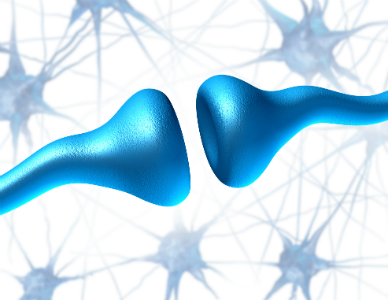Brain Health
Artificial Sweeteners Provoke Memory Loss
If you reach for diet sodas to help perk you up in that afternoon dip or to get you going in the morning, you might want to think again.
Side-effects of artificial sweeteners
A recent study showed mice fed large doses of aspartame had slower thinking and memory loss. They also had lowered brain hormones such as serotonin and dopamine and increased oxidative stress. Worse still their brain glucose, our main brain fuel, was lowered. Artificial sweeteners account for over 75% of reactions to food additives reported to the FDA in America. These reactions include – memory loss, headaches, migraines, dizziness, heart palpitations, depression and fatigue. Researchers are also concerned about diseases such as Alzheimer’s, epilepsy, chronic fatigue and Multiple Sclerosis. So we know that consumption of large doses of artificial sweeteners does reduce brain hormones (or neurotransmitters). They also imbalance the anti-oxidant status in the brain. Aspartame is partially metabolized to methanol and formaldehyde – both chemicals known to have brain side-effects.
Break the sugar and sweetener addiction
Many people are aware of the addictive properties of sugar which involve the same dopamine receptors in the pleasure centres of the brain as cocaine, nicotine and alcohol. Other toxic effects of excessive sugar consumption include poor immune function, kidney damage, atherosclerosis, oxidative stress and cancer. Sugar is added to many processed foods to encourage our addiction to sweet tastes and keep us coming back for more. Foods that you normally wouldn’t associate with sugar, like bread, keep our sweet tooth active and drive our food choices. But it’s easy to break the sugar addiction. Cut down on your sugar intake each day. You will be driven to crave sugar but eat plenty of protein and healthy oils such as olive oil and within a week to 10 days, your reliance on sugar will be much reduced. Persevere and your addiction to sweet tastes, whether its sugar or sweeteners, will disappear. Believe me as someone who used to take 3 sugars in my tea, this does work.
Sweeteners – an environmental hazard
Many studies now are looking into artificial sweeteners and the environment. It appears they are resistant to breakdown and persist for a long time even in the presence of strong sunlight. This could have a big effect on various aquatic ecosystems. Studies of environmental ecosystems have confirmed the widespread distribution of acesulfame, cyclamate, saccharin and sucralose in the water cycle at levels that are among the highest known for trace pollutants. Studies on crustaceans looked at the behavioural and physiological effects of sucralose in shellfish. The results show that both physiology and locomotion behaviour were affected by exposure to sucralose. In certain breeds, the behavioural response showed as altered swimming height and increased swimming speed, whereas in other species the time to reach food and shelter was prolonged. So the animals were acting like they were on speed but not being very effective – sound familiar? Most of these side-effects are dose-related. In other words, the more you eat the more likely you are to get side-effects. Look for hidden sweeteners in foods like yoghurts and sugar-free goods. So the bottom line is this – don’t let yourself be controlled by marketing messages. Reduce your intake of processed foods and artificial sweeteners and set your brain free to do its best work. You’ll notice the benefits straight away…
If you would like to know more about how to turbocharge your brain with the best superfoods click here
References 1) Studies on the effects of aspartame on memory and oxidative stress in brain of mice. Eur Rev Med Pharmacol Sci. 2012 Dec;16(15):2092-101. Abdel-Salam OM1, Salem NA, El-Shamarka ME, Hussein JS, Ahmed NA, El-Nagar ME. 2) A review of the genotoxic and carcinogenic effects of aspartame: does it safe or not? Cytotechnology Feb 2014. DOI 10.1007/s10616-013-9681-0. Review paper. Serkan Yılmaz, Aslı Uçar 3) Aspartame: a safety evaluation based on current use levels, regulations, and toxicological and epidemiological studies. Crit Rev Toxicol. 2007;37(8):629-727. Magnuson BA1, Burdock GA, Doull J, Kroes RM, Marsh GM, Pariza MW, Spencer PS, Waddell WJ, Walker R, Williams GM. 4) Evaluating the environmental impact of artificial sweeteners: a study of their distributions, photodegradation and toxicities. Water Res. 2014 Apr 1;52:260-74. Sang Z1, Jiang Y1, Tsoi YK1, Leung KS2. 5) Sucralose – an ecotoxicological challenger? Chemosphere. 2012 Jan;86(1):50-5. Wiklund AK1, Breitholtz M, Bengtsson BE, Adolfsson-Erici M.





